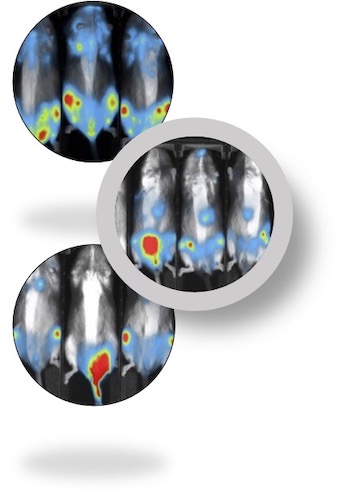TransCure bioServices has recently developed new mouse models for studying cancer therapies against Acute myeloid leukemia (AML) in vivo. These mouse leukemia models represent a great advance in preclinical research against this aggressive form of cancer.
Acute Myeloid Leukemia (AML) is a cancer type that starts in the bone marrow, from precursor cells of the myeloid lineage and is characterized by the rapid growth of cancer cells in the bone marrow and blood. AML affect normal hematopoiesis (red blood cells, white blood cells and platelets).
The American Cancer Society reports that AML is the most common type of leukemia among adults. Current treatment includes chemotherapy as the first line of treatment, followed by radiation therapy or stem cell transplantation.
AML mouse models for in vivo studies
Mouse AML models include xenograft in immunodeficient/humanized mouse models to better recapitulate the human disease. Injecting AML luciferase expressing tumor cells offered a faster approach to study in vivo the efficacy and/or toxicity of AML therapies (targeted therapy, cytotoxic drugs, antibody or cell therapies), the disease progression, but also to understand the functional characterization of AML pathogenesis.
With the help of different research tools, we will help you to follow and evaluate different biological mechanisms and actions of various drugs or drug combinations in mice:
- Monitoring of tumor burden & analysis of tumor growth inhibition
- Monitoring & analysis of drug toxicity
- Flow Cytometry & Immune Profiling (immune phenotype, biomarkers expression, cytokines analysis, therapeutic efficacy, etc.)
- In Vivo Imaging Bioluminescence
- Tissue and cellular sampling…

